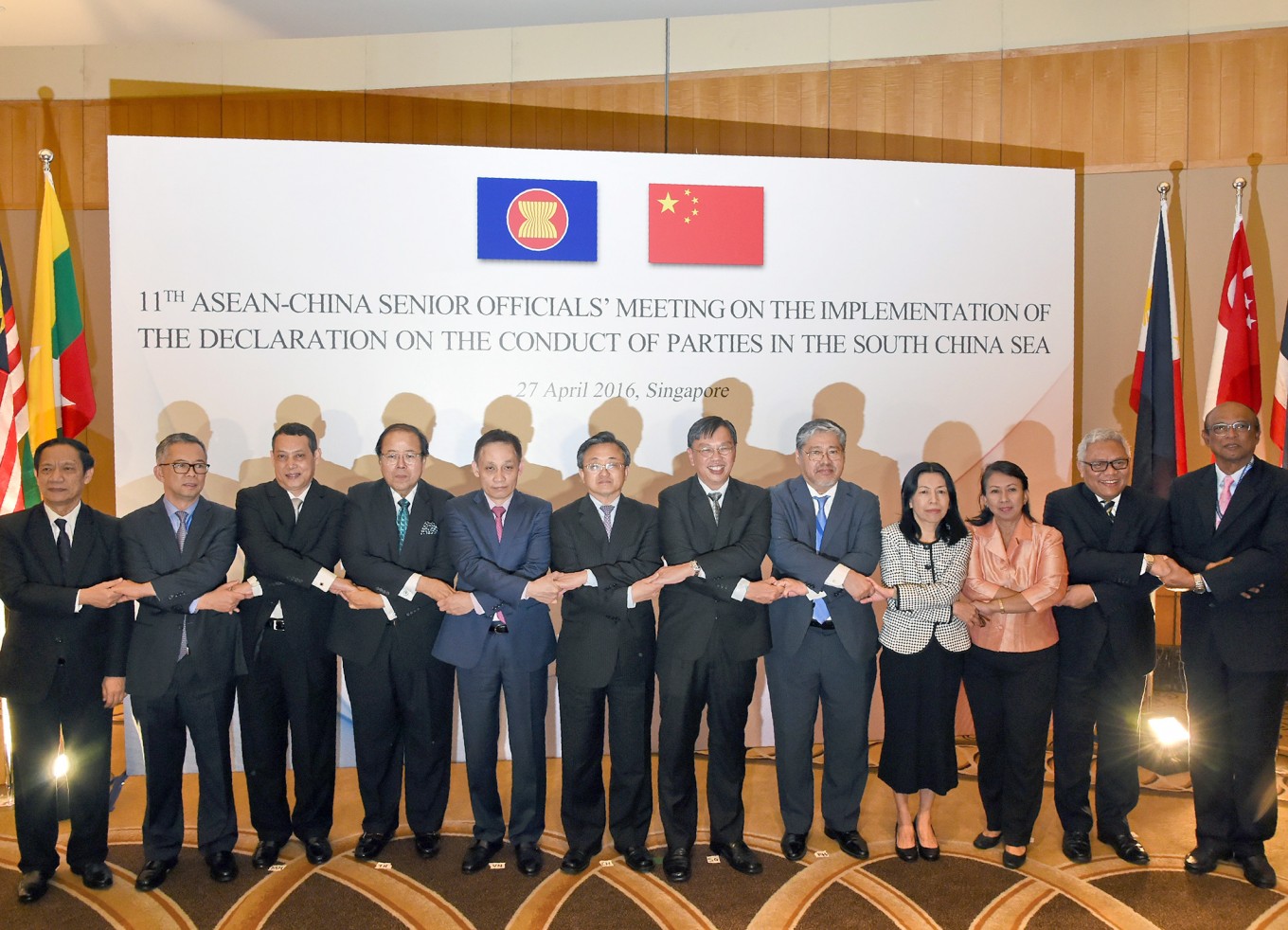Code of Conduct framework not an instrument to settle disputes between China and ASEAN
According to documents obtained by INQUIRER.net, the ASEAN countries and China agreed that the framework must “promote mutual trust, cooperation and confidence, prevent incidents, manage incidents should they occur and create a favorable environment for the peaceful resolution of disputes.”
Change Size
 Joint Press Briefing of the 11th ASEAN-China Senior Officials’ Meeting on the Implementation of the Declaration on the Conduct of Parties in the South China Sea (SOM-DOC) and 22nd ASEAN-China Senior Officials’ Consultations (ACSOC). (Exclusive/Asean.org)
Joint Press Briefing of the 11th ASEAN-China Senior Officials’ Meeting on the Implementation of the Declaration on the Conduct of Parties in the South China Sea (SOM-DOC) and 22nd ASEAN-China Senior Officials’ Consultations (ACSOC). (Exclusive/Asean.org)
S
outheast Asian countries and China have agreed that the framework for the Code of Conduct (COC) of Parties in the South China Sea was “not an instrument to settle territorial disputes or maritime delimitation issues.”
This developed even after the Association of Southeast Asian Nations (ASEAN) and the Chinese government both sought to craft a “legally-binding” COC that would address sea dispute.
A draft framework, which would be endorsed by ASEAN and China foreign ministers on Aug. 6 in Manila, would be “rules-based,” containing “a set of norms to guide the conduct of parties and promote maritime cooperation in the South China Sea.”
According to documents obtained by INQUIRER.net, the parties agreed that the framework must “promote mutual trust, cooperation and confidence, prevent incidents, manage incidents should they occur and create a favorable environment for the peaceful resolution of disputes.”
They also decided to maintain “respect for each other’s independence, sovereignty and territorial integrity in accordance with international law, and the principle of non-interference in the internal affairs of other states.”
The draft framework also highlights the need for “full and effective implementation of the DOC (declaration on the code of conduct of parties in the South China Sea).”
The DOC, signed by both parties in 2002, mandates self-restraint and non-militarization in the disputed waters.
The framework was finalized during the senior officials meeting in Guiyang, China, last May.
During the 30th ASEAN Summit last April, ASEAN member states chose not to mention China’s reclamation activities and apparent militarization in the disputed territories.
Tensions between the Philippines and China erupted after Beijing’s expansive claims over the South China Sea and full scale reclamation activities in the contested waters.
The South China Sea issue also has strained the Philippines’ relations with China after Beijing claimed almost all parts of the minerals-rich region.
But since President Rodrigo Duterte assumed office in June 30 last year, he has maintained “a soft approach” to China as he favored bilateral talks to settle the South China Sea disputes.
The Philippines won a landmark decision at the United Nations-backed arbitral tribunal but China has repeatedly rejected the decision.
In May, the Philippines and China held bilateral talks to discuss “sensitive” issues over the disputed sea.
This article appeared on the Philippine Daily Inquirer newspaper website, which is a member of Asia News Network and a media partner of The Jakarta Post






